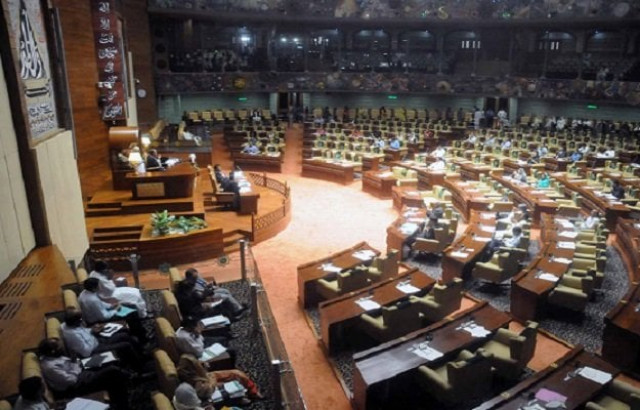‘Floating’ posts stir up bureaucratic controversy
Senior officials fear chosen junior ranking officers will be favoured in appointments

The Sindh Cabinet's decision to allow the appointment of lower grade officers to positions usually occupied by those on a higher basic pay scale (BPS) has stirred up a controversy in official circles.
Under this arrangement, the government can appoint lower grade officers against higher grade posts.
The decision was taken due to a shortage of officers belonging to the federal service group, called the Pakistan Administrative Service (PAS), in the province.
According to official data, the PAS group has a 65 per cent quota on posts of Grade-21 in each province. Similarly, PAS officers have 60 per cent share in grade-20, 50 per cent in grade-19, 40 per cent in grade-18 and 25 per cent in Grade-17 posts in each province.
Last August, the Sindh Cabinet had declared at least 58 posts of Grade-21 and 20 as floating.
According to the spokesperson of the Chief Minister's House, the decision was taken due to a shortfall of officers belonging to the federal services group.
The Sindh government faces at least a 50 per cent shortage of Grade-21 officers, over 75 per cent in Grade-20 and 80 per cent in Grade-19 officers.
The posts declared as floating included those of the planning and development board chairperson, Inspection and Enquiries Team chairperson, Anti-Corruption Establishment chairperson and Karachi commissioner.
The Sindh Cabinet's decision is considered in contravention of Supreme Court judgments.
READ ECP directs Sindh to finalise delimitation work
It is also perceived that the decision will promote favouritism in the appointment of officers on higher grades.
"It is an illegal decision", said All Pakistan Provincial Civil Services Association (APPCSA) Spokesperson Tariq Mehmood Awan. Speaking to The Express Tribune, he outlined that the decision of the Sindh Cabinet was in violation of the Supreme Court's judgment under which junior officers cannot be posted to senior positions defined for officials of a higher grade.
Senior Karachi-based journalist Irshad Khokhar also echoed his views and said the the decision can open doors to favouritism in the provincial bureaucracy.
He said that the government will appoint junior grade officers of its liking to posts declared as floating. Under the decision, he added, the government can also appoint juniors as heads and managing directors of different autonomous bodies.
As a result, he continued, the affairs of such government bodies could not be run on merit.
The solution?
According to Awan, the issue of the shortage of PAS officers needs a permanent solution. Presently, he added, the PAS officers have some 1,480 seats in the provinces, while their total strength is just 550.
"In this situation,the provinces will continuously face a shortage of PAS officers.
Either the federal government decreases its share in the provinces or the provinces increase their seats to resolve this issue permanently," he said.
He claimed that the provinces have the power to increase posts of provincial services under the Constitution. He went on to say that the provinces can also appoint chief secretaries and IGs of police.
When contacted, Sindh Advocate General Suleman Habibullah had "no comments" to offer on the issue and the apprehensions held by others.
Published in The Express Tribune, October 13th, 2021.



















COMMENTS
Comments are moderated and generally will be posted if they are on-topic and not abusive.
For more information, please see our Comments FAQ